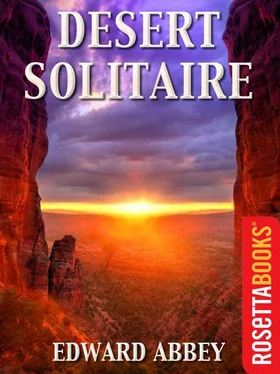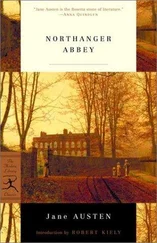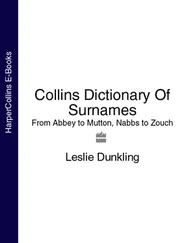Abbey, Edward - Desert Solitaire (Edward Abbey Series )
Здесь есть возможность читать онлайн «Abbey, Edward - Desert Solitaire (Edward Abbey Series )» — ознакомительный отрывок электронной книги совершенно бесплатно, а после прочтения отрывка купить полную версию. В некоторых случаях можно слушать аудио, скачать через торрент в формате fb2 и присутствует краткое содержание. Год выпуска: 2011, Издательство: RosettaBooks, Жанр: Старинная литература, на английском языке. Описание произведения, (предисловие) а так же отзывы посетителей доступны на портале библиотеки ЛибКат.
- Название:Desert Solitaire (Edward Abbey Series )
- Автор:
- Издательство:RosettaBooks
- Жанр:
- Год:2011
- ISBN:нет данных
- Рейтинг книги:4 / 5. Голосов: 1
-
Избранное:Добавить в избранное
- Отзывы:
-
Ваша оценка:
- 80
- 1
- 2
- 3
- 4
- 5
Desert Solitaire (Edward Abbey Series ): краткое содержание, описание и аннотация
Предлагаем к чтению аннотацию, описание, краткое содержание или предисловие (зависит от того, что написал сам автор книги «Desert Solitaire (Edward Abbey Series )»). Если вы не нашли необходимую информацию о книге — напишите в комментариях, мы постараемся отыскать её.
Desert Solitaire (Edward Abbey Series ) — читать онлайн ознакомительный отрывок
Ниже представлен текст книги, разбитый по страницам. Система сохранения места последней прочитанной страницы, позволяет с удобством читать онлайн бесплатно книгу «Desert Solitaire (Edward Abbey Series )», без необходимости каждый раз заново искать на чём Вы остановились. Поставьте закладку, и сможете в любой момент перейти на страницу, на которой закончили чтение.
Интервал:
Закладка:
Standing there, gaping at this monstrous and inhuman spectacle of rock and cloud and sky and space, I feel a ridiculous greed and possessiveness come over me. I want to know it all, possess it all, embrace the entire scene intimately, deeply, totally, as a man desires a beautiful woman. An insane wish? Perhaps not—at least there’s nothing else, no one human, to dispute possession with me.
The snow-covered ground glimmers with a dull blue light, reflecting the sky and the approaching sunrise. Leading away from me the narrow dirt road, an alluring and primitive track into nowhere, meanders down the slope and toward the heart of the labyrinth of naked stone. Near the first group of arches, looming over a bend in the road, is a balanced rock about fifty feet high, mounted on a pedestal of equal height; it looks like a head from Easter Island, a stone god or a petrified ogre.
Like a god, like an ogre? The personification of the natural is exactly the tendency I wish to suppress in myself, to eliminate for good. I am here not only to evade for a while the clamor and filth and confusion of the cultural apparatus but also to confront, immediately and directly if it’s possible, the bare bones of existence, the elemental and fundamental, the bedrock which sustains us. I want to be able to look at and into a juniper tree, a piece of quartz, a vulture, a spider, and see it as it is in itself, devoid of all humanly ascribed qualities, anti-Kantian, even the categories of scientific description. To meet God or Medusa face to face, even if it means risking everything human in myself. I dream of a hard and brutal mysticism in which the naked self merges with a nonhuman world and yet somehow survives still intact, individual, separate. Paradox and bedrock.
Well—the sun will be up in a few minutes and I haven’t even begun to make coffee. I take more baggage from my pickup, the grub box and cooking gear, go back in the trailer and start breakfast. Simply breathing, in a place like this, arouses the appetite. The orange juice is frozen, the milk slushy with ice. Still chilly enough inside the trailer to turn my breath to vapor. When the first rays of the sun strike the cliffs I fill a mug with steaming coffee and sit in the doorway facing the sunrise, hungry for the warmth.
Suddenly it comes, the flaming globe, blazing on the pinnacles and minarets and balanced rocks, on the canyon walls and through the windows in the sandstone fins. We greet each other, sun and I, across the black void of ninety-three million miles. The snow glitters between us, acres of diamonds almost painful to look at. Within an hour all the snow exposed to the sunlight will be gone and the rock will be damp and steaming. Within minutes, even as I watch, melting snow begins to drip from the branches of a juniper nearby; drops of water streak slowly down the side of the trailerhouse.
I am not alone after all. Three ravens are wheeling near the balanced rock, squawking at each other and at the dawn. I’m sure they’re as delighted by the return of the sun as I am and I wish I knew the language. I’d sooner exchange ideas with the birds on earth than learn to carry on intergalactic communications with some obscure race of humanoids on a satellite planet from the world of Betelgeuse. First things first. The ravens cry out in husky voices, blue-black wings flapping against the golden sky. Over my shoulder comes the sizzle and smell of frying bacon.
That’s the way it was this morning.
SOLITAIRE
Still the first day, All Fools’ Day, here at the Center. Merle McRae and Floyd Bence—the superintendent and the chief ranger—appear at noon, bringing me five hundred gallons of water in a tank truck and a Park Service pickup truck outfitted with shortwave radio, fire tools, climbing rope, shovel, tow chain, first aid kit, stretcher, axe, etc.; the pickup and its equipment they will leave with me. I am to use it in patrolling the roads within the park, for assisting tourists in trouble, and for hauling firewood to and garbage from the campgrounds. Once a week I may drive the government vehicle to headquarters and Moab for fuel and supplies.
We fill the water tank buried in the slope above the housetrailer and have lunch together in the sunshine, sitting at a wooden picnic table near my doorway. Merle the super, the boss, is a slender, graceful man of about fifty years, with a fine, grave, expressive face toughened though not hardened by a life spent mostly out-of-doors. He was born and raised on a small ranch in New Mexico, went to the University of Virginia, and has made his living as a cattle rancher, dude rancher, CCC supervisor (during the Great Depression) and, since 1940, as a ranger in the National Park Service. He gives me an impression of tenderness, generosity and imperturbable good humor, but also complains, gently, of the hypothetical ulcer he expects to acquire from his years of struggle with administrative paper work. Married, he has three children; the oldest boy attends the University of Utah.
Floyd Bence is a tall powerful man around thirty years old, an archeologist by training, married, with two children. Because of his interests and academic background he should be working at some place like Mesa Verde or Chaco Canyon, poking about in dusty ruins, but is happy enough with his present situation so long as he is free to spend at least part of his time outside the office; the two things he dreads most, as a Park Service career man, are promotion to a responsible high-salaried administrative position, and a transfer back East to one of the cannonball parks like Appomattox or Gettysburg or Ticonderoga. Like myself he’d rather go hungry in the West than flourish and fatten in the Siberian East. A violent prejudice, doomed to disappointment. But at the moment, in the sparkling air and brilliant sunlight of the Utah desert, bad news seems far away.
“Well, Ranger Abbey,” says Merle, “how do you like it out here in the middle of nowhere?”
I said it was okay by me.
They smile. “Kind of lonesome?” Floyd asks.
I said it was all right.
After lunch we get into the cab of the government pickup, all three of us, and tour the park. Arches National Monument remains at this time what the Park Service calls an undeveloped area, although to me it appears quite adequately developed. The roads, branching out, lead to within easy walking distance of most of the principal arches, none more than two miles beyond the end of a road. The roads are not paved, true, but are easily passable to any automobile except during or immediately after a rainstorm. The trails are well marked, easy to follow; you’d have to make an effort to get lost. There are three small camp grounds, each with tables, fireplaces, garbage cans and pit toilets. (Bring your own water.) We even supply the firewood, in the form of pinyon pine logs and old fence posts of cedar, which it will be my task to find and haul to the campgrounds.
We drive the dirt roads and walk out some of the trails. Everything is lovely and wild, with a virginal sweetness. The arches themselves, strange, impressive, grotesque, form but a small and inessential part of the general beauty of this country. When we think of rock we usually think of stones, broken rock, buried under soil and plant life, but here all is exposed and naked, dominated by the monolithic formations of sandstone which stand above the surface of the ground and extend for miles, sometimes level, sometimes tilted or warped by pressures from below, carved by erosion and weathering into an intricate maze of glens, grottoes, fissures, passageways, and deep narrow canyons.
At first look it all seems like a geologic chaos, but there is method at work here, method of a fanatic order and perseverance: each groove in the rock leads to a natural channel of some kind, every channel to a ditch and gulch and ravine, each larger waterway to a canyon bottom or broad wash leading in turn to the Colorado River and the sea.
Читать дальшеИнтервал:
Закладка:
Похожие книги на «Desert Solitaire (Edward Abbey Series )»
Представляем Вашему вниманию похожие книги на «Desert Solitaire (Edward Abbey Series )» списком для выбора. Мы отобрали схожую по названию и смыслу литературу в надежде предоставить читателям больше вариантов отыскать новые, интересные, ещё непрочитанные произведения.
Обсуждение, отзывы о книге «Desert Solitaire (Edward Abbey Series )» и просто собственные мнения читателей. Оставьте ваши комментарии, напишите, что Вы думаете о произведении, его смысле или главных героях. Укажите что конкретно понравилось, а что нет, и почему Вы так считаете.












